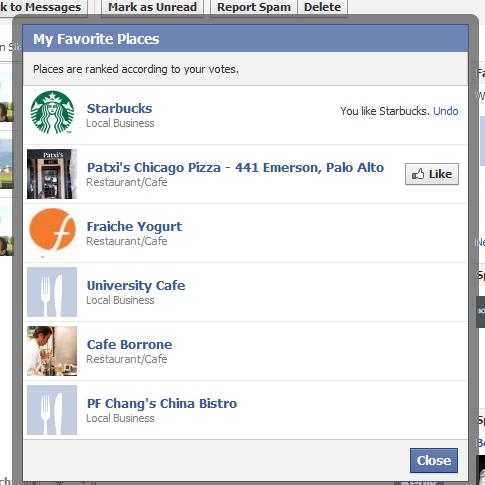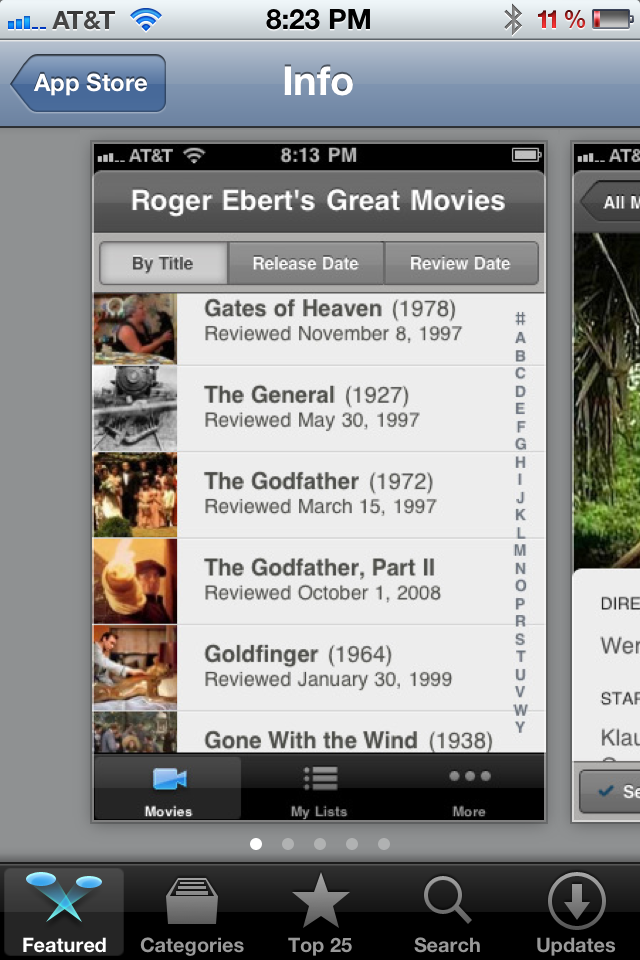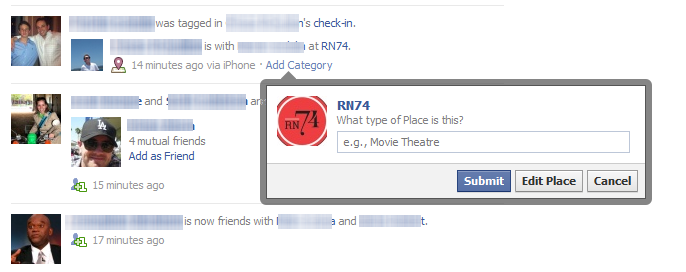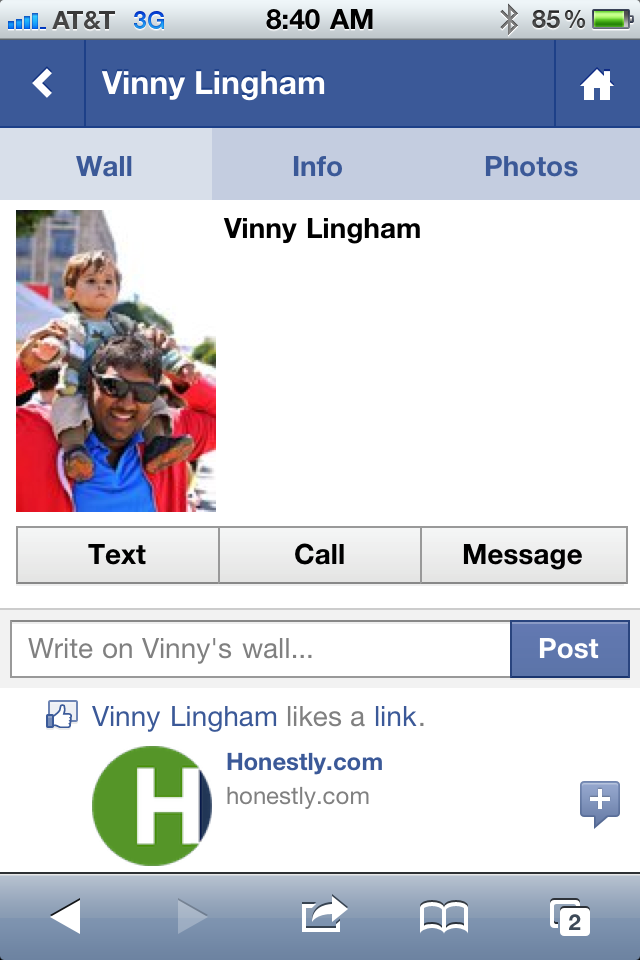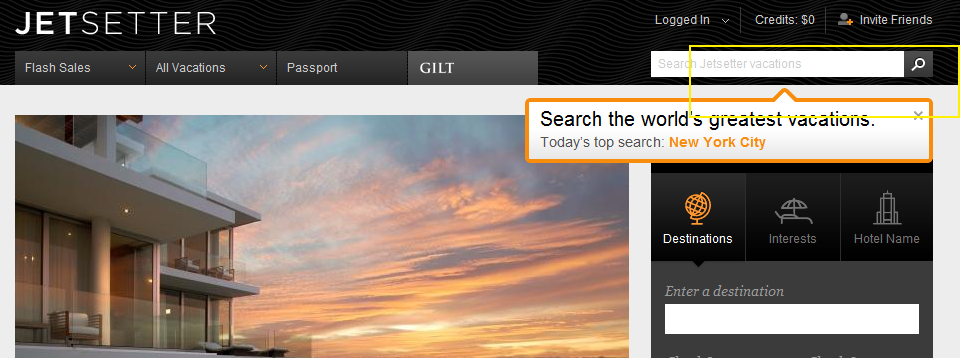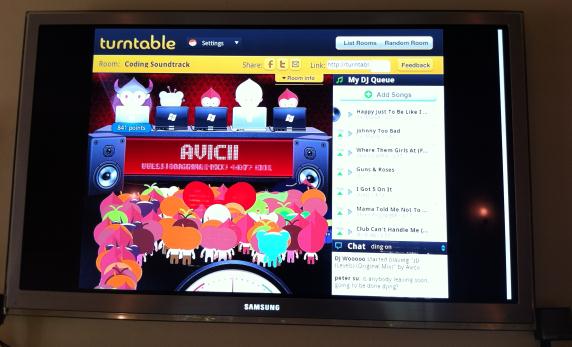As Facebook Places ramps (via mobile, deals, etc), Facebook has started promoting Favorite Places. It is a module that asks users which Place they prefer (this or that). The two choices seems to be either Places you have checked in or have explicitly liked:

Once you vote, two new places are presented.
You have a choice to few your favorite places - which lists all of the places you voted for in an expanded window. However, it is not accessible via a webpage, tab, etc. For this to ultimately be useful, I imagine that will change - and it will effectively create some sort of social map. This seems to be a test to gather data and determine what the output can / should be.
Lots of ideas on that:
- Better page / brand recommendations - Facebook Places overlayed on a social map - Deeper mobile integration with location and notifications - Deeper Deals integration - Way to collect / share deeper data with page-owners and advertisers
